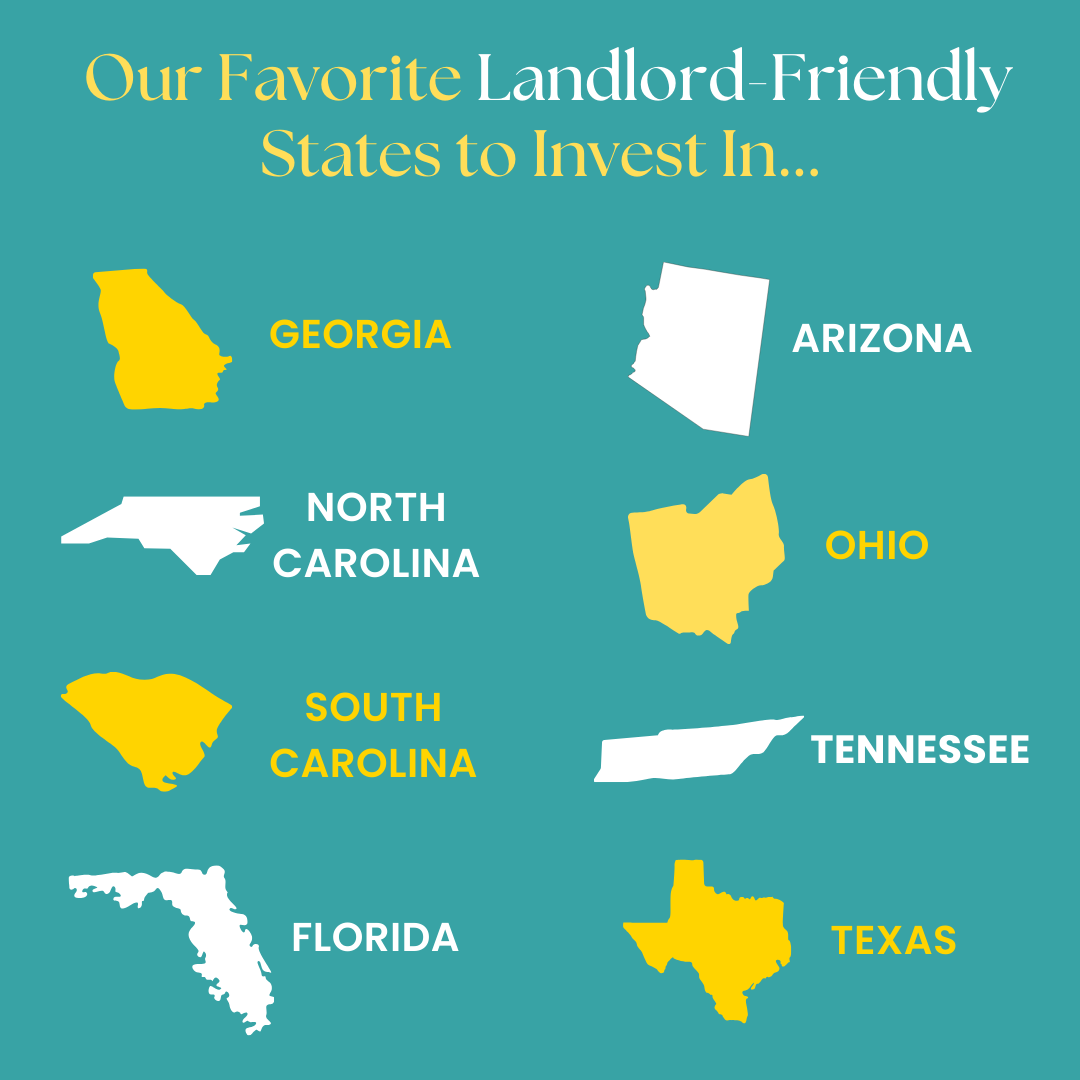How to Choose Landlord-Friendly States to Invest In
A critical decision to make when investing in real estate (whether through active ownership of your own properties, or passively investing through syndications/funds), is WHERE to invest.
Why? State laws and regulations can make or break the profitability of your investment. The market in which your real estate investment is located plays a critical role in its success or failure.
What does it mean to be a landlord-friendly state?
A landlord-friendly state priorities the needs and interests of property owners. In other words, the laws, regulations and rental market trends tend to benefit the landlord over the tenant.
Landlord-friendly states have efficient eviction procedures, favorable security deposit laws, low property taxes, and minimal regulations on rent increases. In addition, landlord-friendly states are favorable toward businesses, providing strong economic and job growth to attract more potential renters.
Below are five traits of a landlord-friendly state, and factors you should consider when deciding where to invest:
#1. Rent Control
The objective of rent control policies is to limit rental rate increases.
As of the writing on this article, seven states (California, Maine, Maryland, Minnesota, New Jersey, New York, Oregon) and the District of Columbia have some form of rent control in place. It’s one of the reasons I’ve never invested in these states. Why invest in a state that limits how much rent you can charge?
Landlord-friendly states have few or no rent restrictions, allowing property owners to adjust rents according to market conditions. This allows rents to be adjusted to market value, rather than being told how much rent can be charged.
So when looking at where to invest, it’s important to consider rent control policies in the market.
#2. Property Taxes & Insurance
Property taxes and insurance rates are important factors to consider when choosing where to invest. These rates vary across states and significantly impact profits. For instance, Illinois and New Jersey have some of the highest property tax rates in the country, while states like Texas and New Mexico restrict how much taxes can grow each year.
Landlord-friendly states tend to have lower property taxes and insurance rates. This is important to consider when deciding where to invest, as this can impact investment returns.
#3. Eviction Process
Unfortunately, part of the real estate business means there will be problematic tenants who default on payments, damage the property or fail to meet their obligations. Some states make it quick and easy to evict bad tenants, while others make it nearly impossible.
Landlord-friendly states have streamlined eviction processes, allowing for tenants to be promptly removed if necessary. It’s important to invest in states with laws and regulations that prioritize landlords’ rights and makes it easier to address any non-compliant tenants quickly and efficiently.
#4. Business-Friendly
States that attract businesses tend to be landlord-friendly. Why should you look to invest where people want to do business?
Well, more business mean more economic growth. And more economic growth means more people moving there.
More people = more potential renters = higher demand for real estate = better investment performance and profits
States with a diverse economy, low unemployment rates, and robust job growth are ideal for investing in real estate. So look for states with that’s easy to do business in.
#5. Favorable Property Management Regulations
Some states require landlords to obtain registrations and licenses to operate rental properties. In addition, some states place a limit on security deposits or late fees that can be charged to tenants. Landlord-friendly states have few or none of these requirements.
Conclusion
Although being landlord-friendly shouldn’t be the only factor that influences your investment decision, it should be a key factor to consider. You cannot change the location of a real estate property, so investing in states that stack the odds in your favor is always a good thing.


